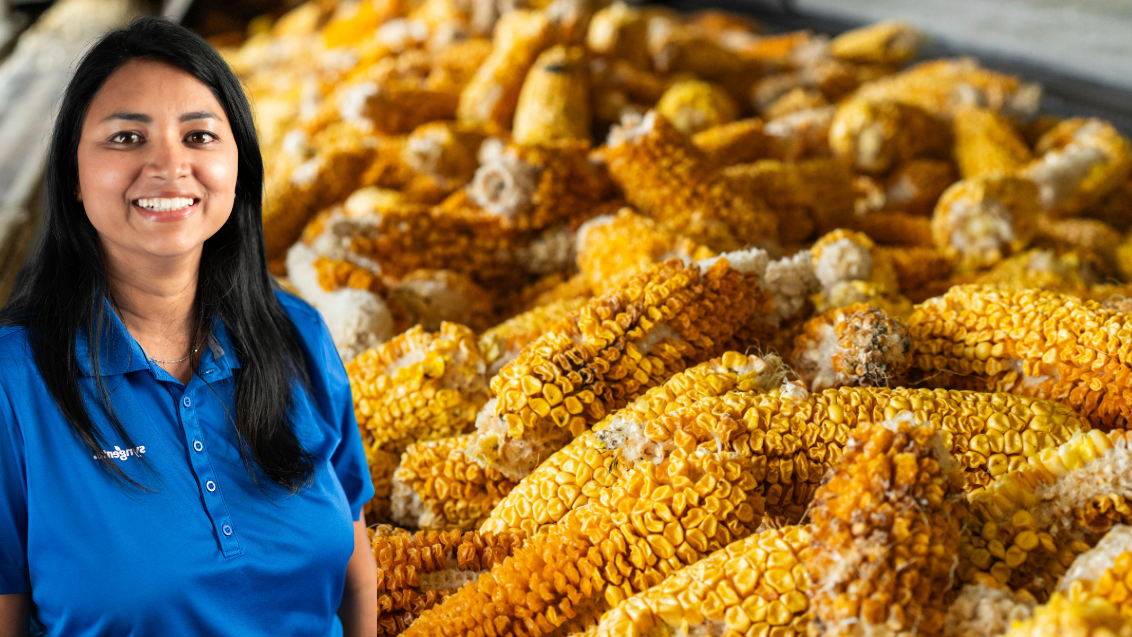USA
May 3, 2024

We recently connected with Juhi Chaudhary, Seed Planner for Syngenta Vegetable Seeds, to learn more about how she helps optimize the seed production process to help meet grower needs and overcome their challenges. She’s located in Pasco, Wash., where sweet corn and many other seeds are processed and delivered to growers around the world.
When it comes to optimizing our processing, it means our experts like Chaudhary look to not only seed and regulatory authorities, but also listen to customers concerns as well.
“We make decisions based on strong statistical data analysis – not based on assumptions,” Chaudhary said. “That means we deliver high quality product that consistently performs to our customers.”
Check out the Q&A with Chaudhary below to learn more about the feedback loop with our customers and how it helps us find solutions:
How do you know what issues matter to growers?
Juhi: Portfolio managers provide feedback from customers, for example, what they like about the product or what they don’t about the product, or what is causing any problem. After reviewing this information, I investigate the details, understand the underlying factors that affect the product quality, and then based on this, we adjust our processes based on customer's needs to improve customer experience.
What is one challenge you’ve discovered solutions for?
Juhi: We had a customer explain they were having uniformity issues at emergence. So, I investigated the details of the situation and set up a very comprehensive trial. In the trial, we worked to identify the factors affecting uniformity in the field, including quality parameters from the field to the processing plant, and until the seed is packed and delivered. Through this work, we figured out what was causing the issue and pinpointed the areas where we can improve our processes, so customers received a better suited product with those changes.
Why do you recommend seed treatment on vegetable seeds?
Juhi: Seed treatment is the very first and very critical step for successful crop production. Seed treatments are created with a combination of target-specific chemistries and with new mode of actions to protect young seedlings against early-stage diseases and pathogens.
Do you customize seed treatment?
Juhi: We customize the treatment recipes to provide customers with the desired makeups, so they have higher yield potential and the potential for healthier plants based on their unique conditions.
What is one example of how you help support continuous improvement for seeds at Syngenta?
Juhi: Certain types of seed species are incredibly small, and that can lead to difficulty when planting. So, we invested in seed encrustment, a process where we add little weight to the seed to make it smoother, and to be adaptable for different kinds of planters. This allowed for easier, more consistent planting for our customers.
Seed quality is paramount and continuous learning about what growers need helps our experts optimize seed plant ability and potential all season long.
© 2024 Syngenta.
Some or all of the varieties may be protected under one or more of the following: Plant Variety Protection, United States Plant Patents and/or Utility Patents and may not be propagated or reproduced without authorization.